
 |
 Lydia Sharp, "The Night of Your Life " English | ISBN: 133831727X | 2020 | 272 pages | EPUB | 6 MB JJ is having the worst prom ever... over and over again. 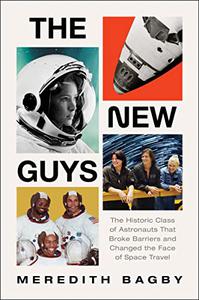 Meredith Bagby, "The New Guys: The Historic Class of Astronauts That Broke Barriers and Changed the Face of Space Travel" English | ISBN: 0063141973 | 2023 | EPUB | 528 pages | 34 MB , the first Asian American, and the first gay person to fly to space. With the exclusive participation of the astronauts who were there, this is the thrilling, behind-the-scenes saga of a new generation that transformed space exploration 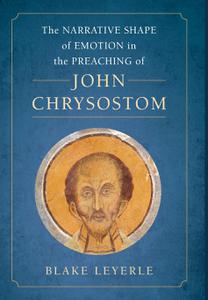 The Narrative Shape of Emotion in the Preaching of John Chrysostom (Christianity in Late Antiquity) by Blake Leyerle English | December 15, 2020 | ISBN: 0520345177 | True EPUB/PDF | 228 pages | 1.2/1.9 MB John Chrysostom remains, along with Augustine, one of the most prolific witnesses to the world of late antiquity. As priest of Antioch and bishop of Constantinople, he earned his reputation as an extraordinary preacher. 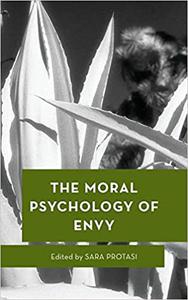 Sara Protasi University of Puget Sound, "The Moral Psychology of Envy (Volume 18) " English | ISBN: 1538160064 | 2022 | 258 pages | PDF | 2 MB Envy is a vicious and shameful response to the good fortune of others, one that ruins friendships and plagues societies-or so the common thinking goes, shaped by millennia of religious and cultural condemnation. Envy's bad reputation is not completely unwarranted; envy can indeed motivate malicious and counterproductive behavior and may strain or even tear apart relations between people. However, that is not always the case. Investigating the complex nature of this emotion reveals that it plays important functions in social hierarchies and it can motivate one to self-improve and even to achieve moral virtue.  The Modern Rockhounding and Prospecting Handbook (Falcon Guides) By Garret Romaine 2013 | 264 Pages | ISBN: 0762784709 | PDF | 22 MB This volume gives you the basic tools to transition from "pebble pup" to expert rockhound and explains everything from geology basics, identification tips, tools of the trade, how to record your findings, and how to set up a lab or gem shop. Before you know it, you'll be driving the open roads and traveling home with dusty pockets full of rocks, gems, minerals, fossils-and maybe even gold.Features:* geology basics* popular collectibles, including rocks, gems, fossils, meteorites, and gold* tools of the trade for every level of collector* rules and regulations* polishing, preserving, crafting, and displaying your treasures 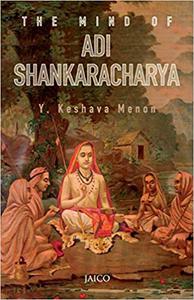 P. S. Venkateswaran, "The Mind of Adi Shankaracharya Ed 8" English | ISBN: 817224214X | 2004 | 136 pages | EPUB | 404 KB Though he is considered one of the foremost of India's philosophers, Shankara is also one of the most misunderstood. Much of the misunderstanding of Shankara's position may be due to the absence of a lucid presentation of his life and works in a comprehensive and readable form. This short monograph is an attempt to meet that need for the benefit of those who have no previous acquaintance with philosophy. Shankara was one of the most subtle of Indian philosophers, and though for him intellectual dexterity was not an end in itself, the reader will find some reasoning worthy of his steel in the following pages. 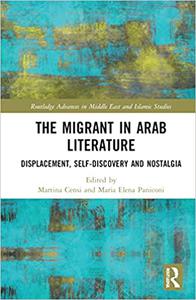 Martina Censi, "The Migrant in Arab Literature " English | ISBN: 0367135884 | 2022 | 206 pages | PDF | 5 MB This edited book offers a collection of fresh and critical essays that explore the representation of the migrant subject in modern and contemporary Arabic literature and discuss its role in shaping new forms of transcultural and transnational identities. The selection of essays in this volume offers a set of new insights on a cluster of tropes: self-discovery, alienation, nostalgia, transmission and translation of knowledge, sense of exile, reconfiguration of the relationship with the past and the identity, and the building of transnational identity. A coherent yet multi-faceted narrative of micro-stories and of transcultural and transnational Arab identities will emerge from the essays: the volume aims at reversing the traditional perspective according to which a migrant subject is a non-political actor. 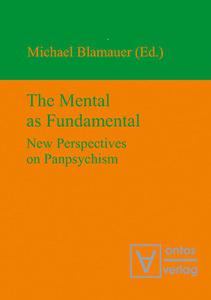 Michael Blamauer, "The Mental as Fundamental: New Perspectives on Panpsychism" English | 2013 | ISBN: 3868381147 | PDF | pages: 173 | 1.1 mb A revival of panpsychistic considerations of the mind's place in nature has recently enriched the debate on the mind-body problem in the contemporary philosophy of the mind. The essays assembled in the present collection aim to supply a positive contribution to these considerations, providing new perspectives on panpsychism by shedding new light on its arguments and impacts, as well as on its problems and theoretical challenges. Panpsychism is discussed as a position that understands consciousness as a truly fundamental feature of our reality-not only with respect to the human species, but also with respect to the evolution of the universe as such.  The Mediterranean Diet Garden : How to grow your own affordable organic food for your first harvest using companion planting to support your Mediterranean, Keto or Paleo diet. by Fern Jennings English | 2022 | ISBN: N/A | ASIN: B0BPMCQDS2 | 116 pages | EPUB | 0.18 Mb Do you find eating healthy to be complicated? 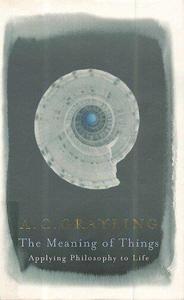 The Meaning of Things: Applying Philosophy to life By A.C. Grayling 2001 | 224 Pages | ISBN: 0753813599 | PDF | 53 MB A refreshing distillation of insights into the human condition, by one of the best-known and most popular philosophers in the UK.Thinking about life, what it means and what it holds in store does not have to be a despondent experience, but rather can be enlightening and uplifting. A life truly worth living is one that is informed and considered so a degree of philosophical insight into the inevitabilities of the human condition is inherently important and such an approach will help us to deal with real personal dilemmas.This book is an accessible, lively and thought-provoking series of linked commentaries, based on A. C. Grayling's 'The Last Word' column in the GUARDIAN. Its aim is not to persuade readers to accept one particular philosophical point of view or theory, but to help us consider the wonderful range of insights which can be drawn from an immeasurably rich history of philosophical thought.Concepts covered include courage, love, betrayal, ambition, cruelty, wisdom, passion, beauty and death. This will be a wonderfully stimulating read and act as an invaluable guide as to what is truly important in living life, whether facing success, failure, justice, wrong, love, loss or any of the other profound experience life throws out. |